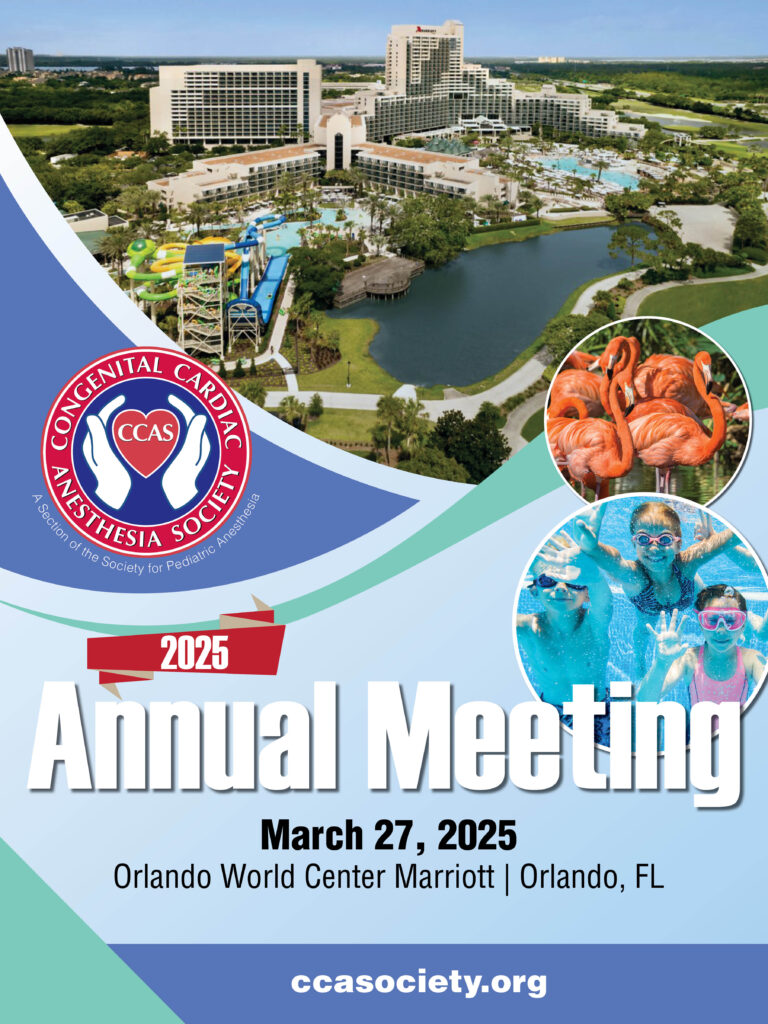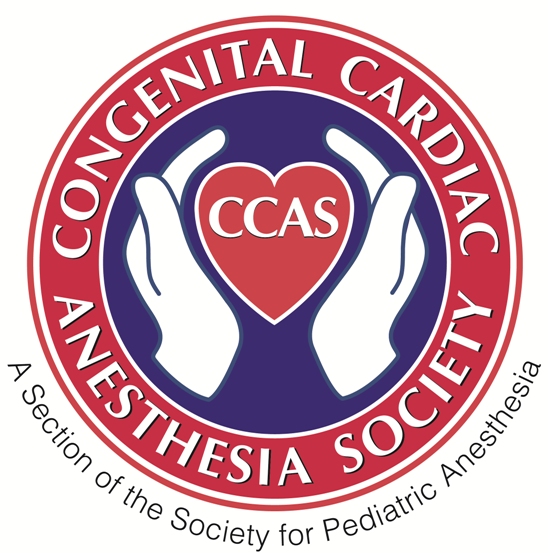Call for Submissions – CCAS 2025 Annual Meeting

Do you have an idea for a Workshop, Problem-Based Learning Discussion (PBLD) or Expert Round Table Discussion that would benefit the Congenital Cardiac Anesthesia Society (CCAS) membership? If so, please see the requirements and submission information below for the CCAS 2025 Annual Meeting. CLICK HERE for more information!
Register Now! CCAS Webinar Series: Pediatric combined heart and liver transplantation: A Growing Population
Please join us for the CCAS Webinar Series: Pediatric combined heart and liver transplantation: A Growing Population on January 27, 2024 at 10:30am EST. This is a joint webinar from the Congenital Cardiac Anesthesia Society (CCAS) and the International Society for Heart and Lung Transplantation (ISHLT). CLICK HERE to learn more and to register for the webinar.
CCAS 2024 Annual Meeting – Registration Open!
Please join us for the Congential Cardiac Anesthesia Society (CCAS) 2024 Annual Meeting at the Anaheim Marriott in Anaheim, CA on April 11, 2024. We hope to see you in Anaheim! However, if you are unable to join us in-person, please register to attend virtually. Click here to learn more about the program!
Call for Submissions – CCAS 2024 Annual Meeting
Do you have an idea for a Workshop, Problem-Based Learning Discussion (PBLD) or Expert Round Table Discussion that would benefit the Congenital Cardiac Anesthesia Society (CCAS) membership? If so, please see the requirements and submission information below for the CCAS 2024 Annual Meeting. Click here for more information!
Call for Submissions – CCAS 2023 Annual Meeting
Do you have an idea for a Workshop, Problem-Based Learning Discussion (PBLD) or Expert Round Table Discussion that would benefit the Congenital Cardiac Anesthesia Society (CCAS) membership? If so, please see the requirements and submission information below for the CCAS 2023 Annual Meeting. WORKSHOPS – Submission deadline is July 22, 2022 We are looking for workshops topics […]
